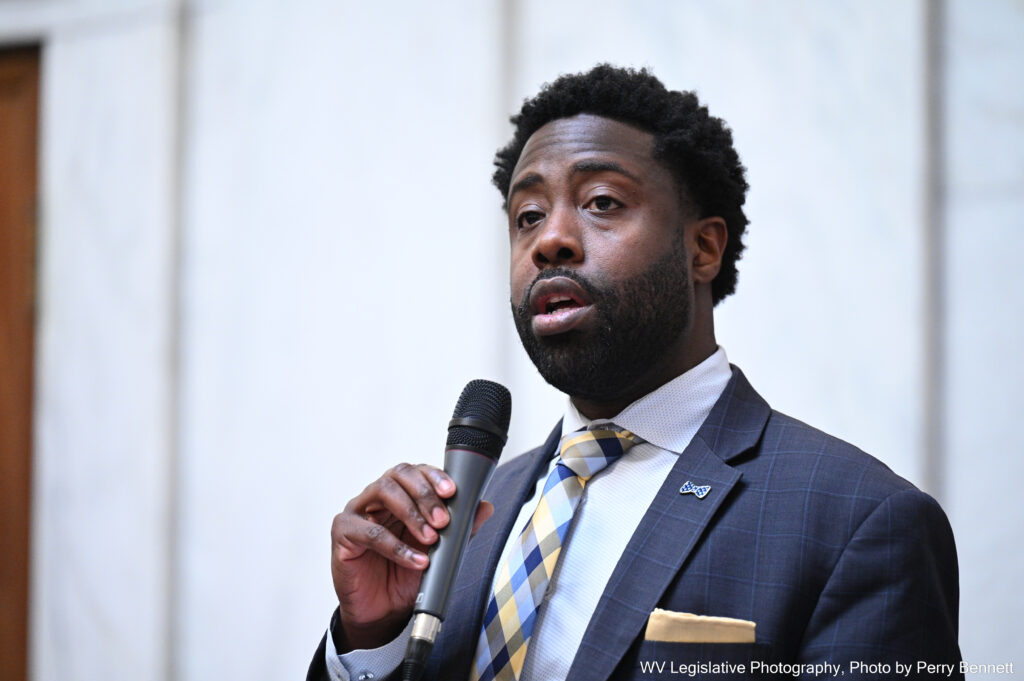Five bills on third reading passed in the House of Delegates Tuesday, including two that fostered some debate over election laws, voting laws and candidate filing periods.
Criminal actions regarding registering to vote are key to House Bill 4017, modifying certain election laws, early voting laws, and absentee voting laws.
The section under debate notes that finding any person who intentionally coerces or offers payment in exchange for a person to register to vote is guilty of a misdemeanor and could be fined and jailed.
House Minority Leader Sean Hornbuckle, D-Cabell, asked that with no specific definition of the terms coerced or payment, could a college campus voter registration table giving away bottled water and cookies, or the Secretary of State’s high school teen voter registration campaign be seen as criminal acts?
“This piece of legislation in front of us could potentially not only harm those high school students and the aforementioned college students, this could criminalize our Secretary of State,” Hornbuckle said. “I would urge us, with the language, to slow down and we need to rethink what we’re doing here because it can be problematic.”
There was no other debate on the floor. House Bill 4017 passed the House by a 90-7 vote. It will become effective Jan. 1, 2025 if it passes the Senate.
Also on third reading, House Bill 4350 removes the ability of political parties to appoint candidates for the primary election in positions where no one has filed.
Del. Mike Pushkin, D-Kanawha, was among several House Democrats opposing a proposed bill they said benefits incumbency and stifles participation in the elective process.
“This is a bill that only protects incumbency,” Puskin said. “The only people that care about this bill are sitting in this room, or down the hall or in a couple county courthouses across the state. So when you’re voting for this, ask yourself Who are your heroes? Who are you here to serve? Your constituents, the voters who deserve choices, or yourself? I’ll be voting against this bill. It is self serving at its worst.”
However, Del. Adam Vance, R-Wyoming, asked House Judiciary Committee Chair Tom Fast, R-Fayette, if the scope of the bill still contained defined time limits, opportunities and restrictions on filing for political office.
“Are there not filing periods for these candidates to file?” Vance asked Fast.
“There certainly are,” Fast answered. “There’s an election every two years in this state. If I want somebody to run for something, I’ve got two years at least to go to him and talk to him and try to talk with me to run it. I don’t see the problem with this bill and I’ve got two years, four years for a Senate seat and it shouldn’t be extra time to just grab somebody and say, here you’re on the ballot. So I’m gonna be a big yes on this.”
House Bill 4350 passed 79-18 and also now goes to the Senate.




















